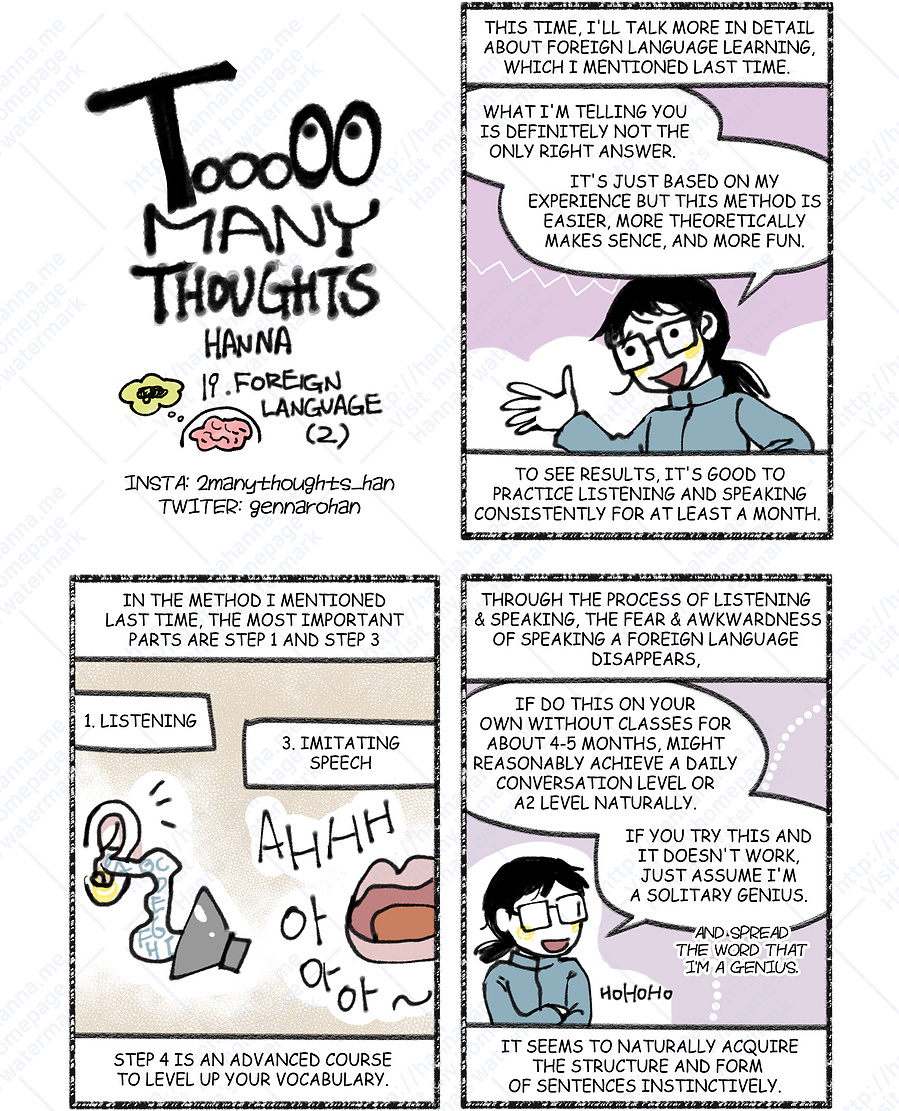
019 :: Foreign Language (2)
$2.00 USD
This episode is an in-depth course on foreign language convenience. If you are interested, please pay for it. However, it may be a little lacking in intuitive additional tips on how to learn. Just think of it as an additional episode.
*A watermark is displayed on the images to prevent unauthorized redistribution and editing.
What Do You Think? Doesn’t Learning a Foreign Language Seem Easier Now? I believe there will be individual differences in the time required, but since it worked for me, it should work for you too. I encourage you to give it a try. If you follow my method and it doesn’t work, then I guess we’ll have to conclude that I’m a genius after all.
This might even serve as proof of Professor Chomsky’s hypothesis. Of course, he approached it by mathematically analyzing the grammar of various languages and English to prove his theory. I, on the other hand, am testing it through direct experience—because the universal language faculty that all humans supposedly possess resides in our bodies. And this language faculty is connected to the nerves in our brain that control our throat, mouth, and tongue. If you’re a human who can hear and speak, the “switch” for this language faculty is already turned on. And if that’s the case, I think the methods and time required to acquire any language should be similar. Just like how children around the same age learn to listen and speak their native language.
I believe that the most essential aspects of humanity—the foundational values and principles structuring our societies—can never be fully theorized or quantified. Numbers and theories are merely tools adopted for their simplicity and comparability, useful for generating statistics or measuring outcomes. They are, in a sense, a language.
Yet, just as language can only ever partially illuminate a culture, theories, data, and metrics likewise capture mere fragments of the whole.
Reality is inherently fluid and relational. ‘Results’ don’t truly exist; what shapes us is time, repetition, and lived experience. This is how human evolution unfolded—not through abstract axioms, but through iterative practice. It’s not idealism; it’s scientific and historical fact. Thus, our brains, our thoughts, our learning, our language, and our futures will always be sculpted by accumulated time and the weight of repeated experience.